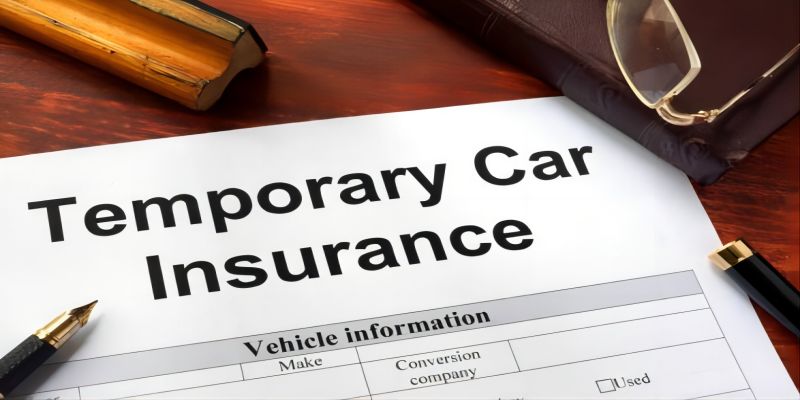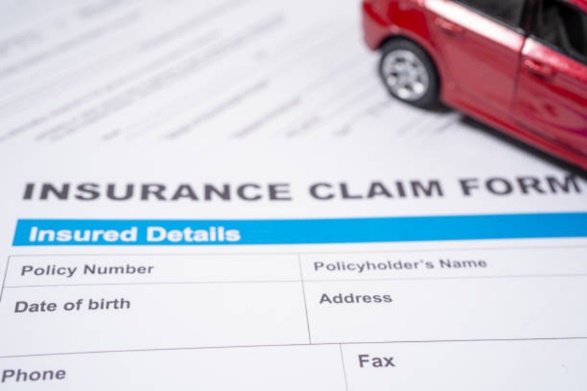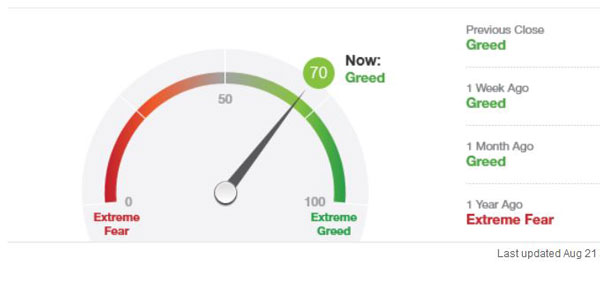Feb 01, 2024 By Susan Kelly

Temporary car insurance, or short-term coverage as it's often referred to, is a flexible option that covers your vehicle for a brief period, typically less than a standard six-month or yearly policy. It can be a lifesaver in multiple situations, such as when you're borrowing a friend's car for a weekend road trip, buying a new vehicle, or even when you have visitors who will be driving your car during their stay. This guide serves as an essential tool for those who may need a temporary solution to car insurance, providing key insights into the nature of short-term coverage, the instances in which it might be necessary, and how to go about obtaining it.
What is Temporary Car Insurance?

Temporary car insurance is a type of coverage that provides short-term protection for your vehicle. It can range from a single day up to one month, offering flexibility and cost-saving benefits for those who only need insurance for a limited time. This type of policy is typically used when the driver does not require long-term coverage, such as in the cases mentioned above.
Temporary car insurance is also often used by those who are in between regular policies and need temporary coverage until their new policy begins.
When Might You Need Temporary Car Insurance?
Temporary car insurance can be useful in a variety of situations. Some examples include:
- Borrowing a friend or family member's car: If you're planning on borrowing someone else's vehicle for a short period, temporary car insurance can provide you with the necessary coverage to drive legally.
- Renting a car: When traveling and renting a car, it's essential to have insurance coverage. Temporary car insurance can be an affordable option compared to the rental company's policies.
- Selling or buying a vehicle: Short-term coverage is useful when buying or selling a vehicle as it provides protection during the transfer process.
- Visitors or tourists: If you have friends or family visiting from out of town who will be driving your car, temporary car insurance can provide them with coverage during their stay.
How to Obtain Temporary Car Insurance?
Acquiring temporary car insurance is a straightforward process. Many insurers offer this type of coverage, and you can often purchase it online or over the phone. Here are some steps to follow when obtaining temporary car insurance:
- Determine your coverage needs: Before purchasing temporary car insurance, determine how long you will need coverage and what type of protection you require.
- Research different insurers: Research various insurance companies that offer temporary car insurance and compare their rates and coverage options.
- Get quotes: Request quotes from the insurers you have chosen to compare prices and coverage.
- Provide necessary information: When purchasing temporary car insurance, you will need to provide information about your vehicle, driving history, and any additional drivers who may be covered under the policy.
- Make payment: Once you have chosen an insurer and provided all necessary information, make the payment for the policy.
- Receive proof of insurance: Upon purchasing temporary car insurance, you will receive proof of coverage, usually in the form of an insurance card, which you should keep with you while driving.
Top providers of temporary car insurance
Some of the top providers of temporary car insurance include:
- Geico: Geico offers short-term coverage for up to 28 days, making it a suitable option for those who need insurance for longer periods.
- Progressive: Progressive's short-term policies can range from one day to six months, giving you the flexibility to choose the duration that best suits your needs.
- Allstate: Allstate offers temporary car insurance coverage for up to 45 days and also provides additional coverage options, such as roadside assistance and rental reimbursement.
- State Farm: State Farm's temporary car insurance policies range from one day to six months and offer a variety of coverage options, including liability, collision, and comprehensive.
Costs and Considerations
Temporary car insurance is typically more expensive than standard long-term policies, but it can still save you money in certain situations. Factors that may affect the cost of temporary car insurance include your driving history, the type of vehicle being insured, and the length of coverage.
It's also essential to keep in mind that temporary car insurance only provides short-term coverage and does not accumulate any no-claims discounts. Therefore, if you require long-term coverage, it may be more cost-effective to opt for a standard policy instead.
Temporary car insurance is an excellent option for those who only need insurance for a short period or in specific situations. With proper research and consideration of your coverage needs, you can easily obtain temporary car insurance and have peace of mind while on the road.
Benefits of Temporary Car Insurance

Aside from the flexibility and cost-saving benefits mentioned above, temporary car insurance offers several other advantages:
- Customizable coverage: Temporary car insurance allows you to choose the level and type of coverage that best suits your needs.
- No long-term commitments: With temporary car insurance, you're not locked into a long-term contract. You can purchase coverage for a specific period and then renew or discontinue it as needed.
- Quick and easy process: Compared to standard policies, obtaining temporary car insurance is a quick and straightforward process, making it an ideal option for those who need immediate coverage.
Conclusion
Temporary car insurance can be a valuable tool in various situations. It offers flexibility, cost-saving benefits, and customizable coverage options for those who need short-term protection for their vehicle. With the information provided in this guide, you can now make an informed decision about whether temporary car insurance is right for you and how to go about obtaining it. Remember to always research and compare different insurers before making a purchase, and drive safely!
-

Detailed Guide to Homeownership for Single Parents
Jan 26, 2024
-

How do police catch uninsured drivers?
Nov 26, 2023
-

Unlocking the Potential: Investing in Real Estate with Your IRA
Nov 21, 2023
-

Financial Challenges: 5 Credit Card Pitfalls to Avoid in Hard Times
Jan 26, 2024
-

Compare: Rainy Day Fund vs. Emergency Fund
Jan 21, 2024
-

Review of The Gap Visa Card
Dec 04, 2023
-

Who Should Get Settlers Life Insurance?
May 10, 2024
-

Discount Brokers vs. Mutual Fund Companies
Oct 10, 2023



